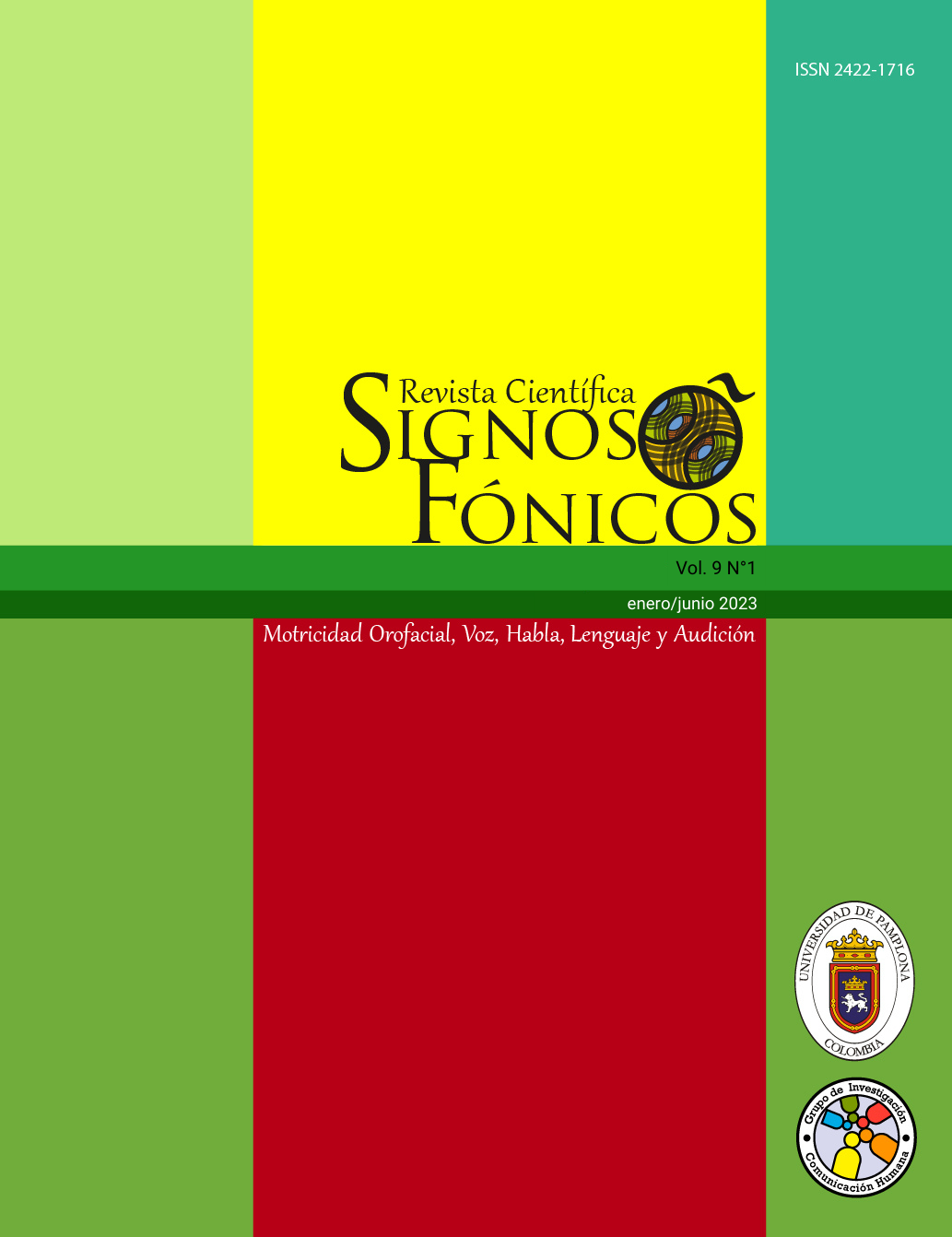Construction of scale that measures the perception of infections and sexually transmitted diseases in Young adults
DOI:
https://doi.org/10.24054/rcsf.v9i1.2438Keywords:
Perception, Sexually transmitted diseases, Young adults, Sexually transmitted infections.Abstract
The objective of this study was to construct a scale to measure the perception of sexually transmitted infections and diseases in young adults at a private university. The methodology used was quantitative and simple random sampling was applied to obtain a sample of 101 participants. A Likert scale of 54 items was implemented, distributed in 4 dimensions: venereal diseases, causes of infection, methods of care and consequences of sexually transmitted diseases. The psychometric results showed a high level of reliability of the scale, with a Cronbahc alpha coefficient (a) equal to or higher than 0.934. In addition, statistically significant associations were found, indicating a good internal consistency of the scale.
Downloads
References
López Domínguez DM, Jaramillo KP, Vázquez LW, Bandera NH. Sexual behavior and STI risk perception in university students with a gender perspective. Boletin de Malariologia y Salud Ambiental. 2021; 61(4): p. 664–672.
Oliveira Bezerraa E, Duarte Pereira ML, Patriota Chaves AC, Vasconcelos Monteiro P. ocial representations of adolescents on sexual relations and the use of condoms. Revista Gaúcha de Enfermagem. 2015; 36(1): p. 84-91.
Duarte-Anselmi G, Leiva-Pinto E, Vanegas-López J, Thomas-Lange J. Experiences and perceptions on sexuality, risk and STI/HIV prevention campaigns by university students. Designing a digital intervention. Ciencia e Saude Coletiva. 2022; 27(3): p. 909-920.
Díez M, Díaz A. Infecciones de transmisión sexual: epidemiología y control. Revista Española de Sanidad Penitenciaria. 2011; 13(2).
Carrillo-Sierra SM, Rivera-Porras D, Forgiony-Santos J, Nuván-Hurtado IL, Bonilla-Cruz NJ, Arenas-Villamizar VV. Habilidades para la vida como elementos en la promoción y educación para la salud en los adolescentes y jóvenes. Archivos Venezolanos de Farmacologia y Terapéutica. 2018; 37(5): p. 567-572.
De Oliveira BI, Spindola T, de Melo LD, Marques SC, de Moraes PC, Costa CMA. Factors influencing condom misuse from the perspective of young university students. Revista de Enfermagem Referencia. 2022;(1): p. 1-8.
Saura S, Jorquera V, Mascort C, Castellà I. Gender meanings of the risk of sexually transmitted infections/HIV transmission among young people. Atención Primaria. 2020; 52(3): p. 218–219.
Ortíz Sánchez NL, Rodríguez González DA, Vázquez Lugo M, Álvarez Aragón M, Sánchez Urra L. Intervención educativa sobre infecciones de transmisión sexual en adolescentes. Revista Médica Electrónica. 2015; 37(5): p. 418-429.
Obach A, Sadler M, Jofré N. Salud sexual y reproductiva de adolescentes en Chile: el rol de la educación sexual. Revista de Salud Pública. 2017; 19: p. 848-854.
Cabrera-Gómez CC, Caldas-Luzeiro J, Rivera-Porras D, Carrillo-Sierra SM. Diseño del programa de bienestar psicológico de educación en salud online “Florece” para contextos universitarios. Archivos Venezolanos de Farmacologia y Terapéutica. 2019; 38(5): p. 533-539.
Villafañe-Ferrer LM, González-Navarro RM. Comportamientos de riesgo y nivel de conocimiento de infecciones de transmisión sexual en estudiantes universitarios. Duazary. 2017; 14(2): p. 160.
Mendoza LA, Arias M, Pedroza M, Micolta P, Ramírez A, Cáceres C, et al. Actividad sexual en adolescencia temprana: problema de salud pública en una ciudad colombiana. Revista chilena de obstetricia y ginecología. 2012; 77(4): p. 271-279.
Visalli G, Cosenza B, Mazzù FBMP, Spataro P, Pellicanò GF, DI Pietro A, et al. Knowledge of sexually transmitted infections and risky behaviours: a survey among high school and university students. Journal of Preventive Medicine and Hygiene. 2019; 60(2): p. E84–E92.
Kaggwa MM, Muwanguzi M, Najjuka SM, Nduhuura E, Kajjimu J, Mamun MA, et al. Risky sexual behaviours among Ugandan university students: A pilot study exploring the role of adverse childhood experiences substance use history, and family environment. PLoS ONE. 2022; 17(11 November): p. 1-21.
De Melo LD, Sodré CP, Spindola T, Martins ERC, De Oliveira André NLN, da Motta CVV. A prevenção das infecções sexualmente transmissíveis entre jovens e a importância da educação em saúde. Enfermería Global. 2022; 21(1): p. 74–115.
Palacios-Delgado JR, Ortego-García N. Differences in sexual negotiation styles and sexual self-efficacy in use of condom in university men and woman of Queretaro, Mexico, 2018. Revista Colombiana de Obstetricia y Ginecologia. 2020; 71(1): p. 9-20.
Matthews H, Schmiedel S. Sexuell übertragbare Erkrankungen. Deutsche medizinische Wochenschrift (1946). 2022; 147(21): p. 1407–1422.
Crowley JS, Geller AB, Vermund SH. Sexually Transmitted Infections: Adopting a Sexual Health Paradigm: National Academies Press (US); 2021.
Erlandson KM, Karris MY. HIV and Aging: Reconsidering the Approach to Management of Comorbidities. Infectious disease clinics of North America. 2019; 33(3): p. 769–786.
Syme ML, Cohn TJ, Stoffregen S, Kaempfe H, Schippers D. "At My Age ... ": Defining Sexual Wellness in Mid-and Later Life. Journal of sex research. 2019; 56(7): p. 832–842.
Fasciana T, Capra G, Lipari D, Firenze A, Giammanco A. Sexually Transmitted Diseases: Diagnosis and Control. International journal of environmental research and public health. 2022; 19(9): p. 5293.
Benavente B, Casado S, Orte C, Ballester L, Abuso PDEL. Sexual En Estudiantes Universitarios:Un. Enseñanza e Investigación En Psicología. 2017; 2(1): p. 15-26.
Peláez Mendoza J. El uso de métodos anticonceptivos en la adolescencia. Revista cubanade obstetricia y ginecología. 2016; 42(1).
Carrillo-Sierra SM, Ramírez-Ramírez EM, Sanabria-Medina AS, Forgiony-Santos J, Rivera-Porras D. Psychometric properties of the questionnaire of educational inclusion (CIE) for university contexts. Gaceta Médica de Caracas. 2022; 130(3): p. S577-S587.
Rodríguez-González D, Cáceres-Delgado M, Carrillo-Sierra SM, Rivera-Porras D, Calderón-Suescún DP, Angarita-Ortiz MF. Factores de protección de la salud mental en Universitarios: Actividad Física e Inteligencia emocional. Archivos Venezolanos de Farmacología y Terapéutica. 2020; 39(6): p. 753-763.
Downloads
Published
Issue
Section
License
Copyright (c) 2023 Leidy Tatiana Ávila Sandoval,Anabella Julieth Dos Santos Valencia, Laura Catalina Parra Galdino, Aileen Isabella Correa García, Nayareth Rincón Rodríguez, Tatiana Marín Avellaneda, Gloria Silva Monsalve, Daniel Cepeda Pineda, Diego Rivera Porras

This work is licensed under a Creative Commons Attribution-NonCommercial-NoDerivatives 4.0 International License.











